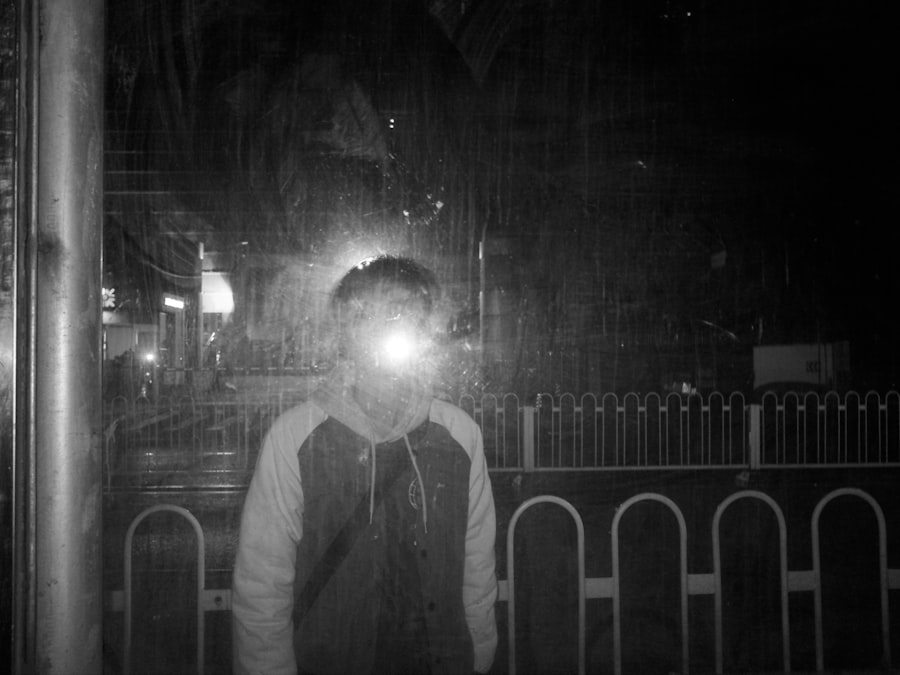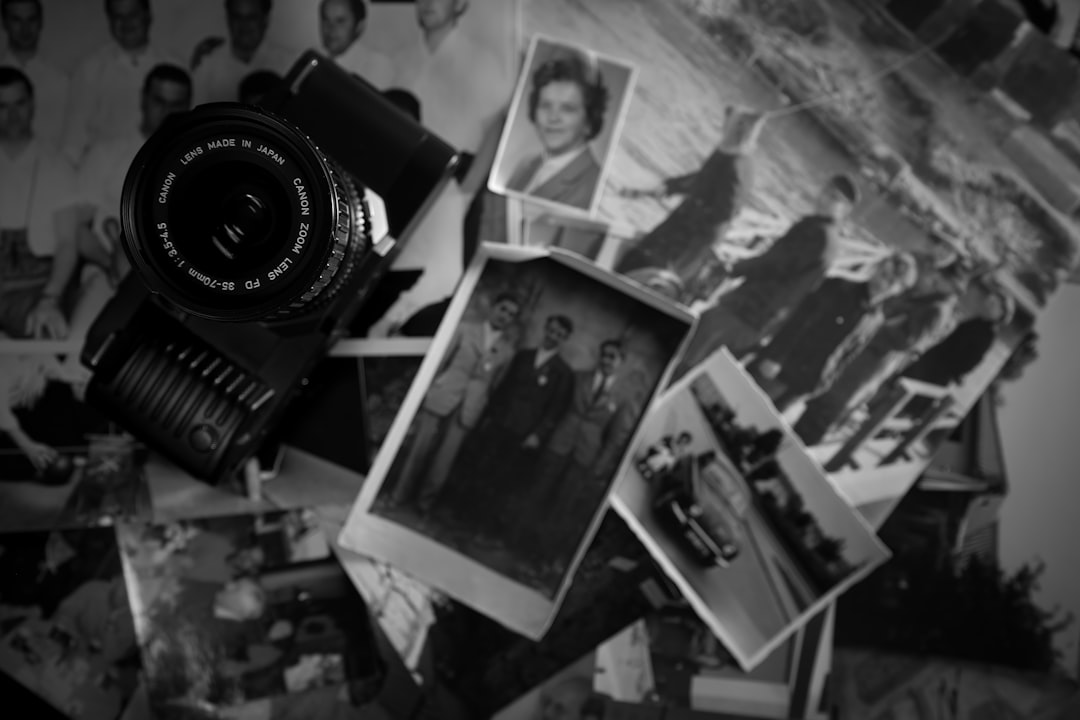False memory refers to the phenomenon where a person recalls an event that did not actually occur or remembers it differently from the way it happened. This intriguing aspect of human cognition highlights the malleability of memory, suggesting that our recollections are not as reliable as we might believe. You may find it surprising that memories can be constructed rather than merely retrieved, leading to the creation of vivid yet inaccurate accounts of past experiences.
This phenomenon raises important questions about the nature of memory itself and how it shapes our understanding of reality. Understanding false memory is crucial, especially in contexts where accurate recall is essential, such as legal settings or therapeutic environments. You might be surprised to learn that even confident recollections can be misleading.
Research has shown that individuals can be convinced of events that never took place, often with little prompting. This realization challenges the notion that memory is a perfect recording of our experiences, emphasizing instead that it is a dynamic process influenced by various factors.
Key Takeaways
- False memories are recollections of events that never actually happened, but are believed to be true.
- False memories can be formed through suggestion, leading questions, and misinformation.
- False memories can have a significant impact on an individual’s beliefs, behaviors, and decision-making.
- Suggestion plays a crucial role in the formation of false memories, as external influences can distort one’s recollection of events.
- Factors such as age, personality, and emotional state can influence the susceptibility to false memories.
How False Memories are Formed
The formation of false memories can occur through several mechanisms, including suggestion, misinformation, and the blending of real experiences with imagined ones. When you encounter new information after an event, it can alter your original memory. For instance, if you hear someone describe an event in a particular way, your mind may integrate that information into your own recollection, leading to a distorted version of what actually happened.
This process illustrates how easily your memories can be reshaped by external influences. Another way false memories can form is through the power of imagination. When you vividly imagine an event, your brain may encode that imagined scenario as a real memory.
You might find yourself recalling details about an event you never experienced simply because you visualized it so vividly. This phenomenon underscores the importance of understanding how imagination and memory intertwine, as it can lead to significant discrepancies between what you believe to be true and what actually occurred.
The Impact of False Memories

The impact of false memories can be profound, affecting personal relationships, legal outcomes, and even mental health. When you hold onto a false memory, it can shape your beliefs and behaviors in ways that may not align with reality. For example, if you remember a friend betraying your trust in a way that never happened, it could lead to unnecessary conflict and strain in your relationship.
The emotional weight of these memories can create rifts and misunderstandings that might have been avoided had the true events been accurately recalled. In legal contexts, false memories can have dire consequences. Eyewitness testimonies are often considered pivotal in court cases, yet they are notoriously unreliable due to the potential for false memories.
If you were to witness a crime and later recall details inaccurately, your testimony could lead to wrongful convictions or acquittals. This highlights the critical need for awareness around the reliability of memory and the potential ramifications of false recollections in high-stakes situations.
The Role of Suggestion in False Memory
| Study | Participants | Findings |
|---|---|---|
| Loftus and Palmer (1974) | 45 students | Leading questions influenced speed estimates of car crash |
| Wade et al. (2002) | Participants with high suggestibility | More likely to develop false memories |
| Shaw and Porter (2015) | 100 participants | False memories created through suggestion in a misinformation paradigm |
Suggestion plays a significant role in the creation of false memories. When you are exposed to leading questions or misleading information, your recollection can be altered without your conscious awareness. For instance, if someone asks you whether you saw a red car at the scene of an accident when there was none, you might later remember seeing that car even though it never existed.
This phenomenon demonstrates how easily your memory can be influenced by external cues. The implications of suggestion extend beyond casual conversations; they are particularly relevant in therapeutic settings.
You may find it unsettling to consider how suggestion can shape your understanding of your own life story, emphasizing the need for caution and awareness in both personal and professional contexts.
Factors that Influence False Memory
Several factors contribute to the likelihood of developing false memories, including age, stress levels, and individual differences in cognitive processing. For instance, younger individuals may be more susceptible to false memories due to their developing cognitive abilities and less robust memory systems. If you are a parent or caregiver, understanding this vulnerability can help you approach discussions about past events with care and sensitivity.
Stress also plays a crucial role in memory formation and recall. High-stress situations can impair your ability to accurately encode and retrieve memories, making you more prone to inaccuracies. If you have ever experienced a traumatic event, you may have noticed how fragmented or unclear your memories are afterward.
This highlights the importance of recognizing how emotional states can influence memory accuracy and the potential for false recollections.
The Link Between False Memory and Trauma

The relationship between false memory and trauma is complex and multifaceted. Traumatic experiences can lead to fragmented memories or even complete amnesia for certain events. In some cases, individuals may later “recover” these memories through therapy or other means, but there is a risk that these recovered memories may not be entirely accurate.
If you have experienced trauma, it’s essential to approach any recovered memories with caution and an understanding of the potential for distortion. Moreover, the emotional intensity associated with traumatic events can create vivid but inaccurate memories. You might find yourself recalling specific details with great clarity while other aspects remain hazy or entirely absent.
This phenomenon underscores the need for careful exploration of traumatic memories in therapeutic settings, as well as an awareness of how easily they can be influenced by external factors or suggestions.
False Memory and Eyewitness Testimony
Eyewitness testimony is often viewed as a cornerstone of the legal system; however, its reliability is frequently called into question due to the prevalence of false memories. When you witness an event, your perception and subsequent recall can be influenced by numerous factors, including stress, lighting conditions, and even the presence of other witnesses. These variables can lead to inaccuracies in your memory that may not become apparent until much later.
The implications for justice are significant; wrongful convictions based on faulty eyewitness accounts have been documented extensively. If you were ever called upon to testify as a witness, understanding the potential for false memories could help you approach your recollections with greater caution. It’s essential to recognize that even confident memories can be misleading and that the legal system must take these factors into account when evaluating testimony.
The Dangers of False Memory in Therapy
In therapeutic settings, the potential for false memories poses unique challenges for both clients and therapists. While therapy aims to help individuals process their experiences and heal from past traumas, there is a risk that suggestive techniques or leading questions could inadvertently create false memories. If you are seeking therapy for trauma or distressing experiences, it’s crucial to work with a professional who prioritizes ethical practices and is aware of the complexities surrounding memory.
The dangers extend beyond mere inaccuracies; they can lead to significant emotional distress and confusion for clients who may grapple with reconciling their beliefs about their past with newly formed memories that may not be accurate. As a client, being aware of these risks can empower you to engage in open discussions with your therapist about memory accuracy and the methods being used during sessions.
The Controversy Surrounding Recovered Memories
The topic of recovered memories has sparked considerable debate within psychological circles and beyond. Some argue that individuals can genuinely recover lost memories through therapeutic techniques, while others caution against the potential for creating false memories through suggestion or leading questions. If you have ever encountered discussions about recovered memories, you may have noticed how polarizing this issue can be.
This controversy highlights the need for careful consideration when addressing past traumas in therapy. While some individuals may indeed recover genuine memories that were repressed due to trauma, others may find themselves grappling with fabricated recollections that do not reflect their true experiences. As someone navigating these discussions—whether as a client or a concerned observer—it’s essential to approach the topic with an open mind while remaining critical of the methods employed in memory recovery.
Strategies for Avoiding False Memory
To minimize the risk of developing false memories, several strategies can be employed both personally and professionally. One effective approach is to maintain a detailed record of events as they occur—journaling or documenting experiences can provide a reliable reference point when recalling past events later on. If you find yourself questioning your memories, having written accounts can help clarify what actually transpired.
Additionally, fostering an environment where open dialogue about memories is encouraged can help mitigate inaccuracies.
By actively seeking out diverse perspectives on past events, you create opportunities for more accurate recall.
The Importance of Critical Thinking in Recognizing False Memory
Critical thinking plays a vital role in recognizing and addressing false memories in both personal and professional contexts. By cultivating a mindset that questions assumptions about memory accuracy, you empower yourself to navigate complex situations more effectively. When faced with recollections that seem inconsistent or implausible, taking a step back to evaluate the evidence surrounding those memories can help clarify their validity.
Moreover, fostering critical thinking skills within therapeutic settings encourages clients to engage thoughtfully with their own narratives. If you are working through past experiences in therapy, approaching your recollections with curiosity rather than blind acceptance allows for deeper exploration and understanding. By prioritizing critical thinking in discussions about memory, you enhance your ability to discern between genuine recollections and those influenced by external factors or suggestive techniques.
In conclusion, understanding false memory is essential for navigating both personal experiences and broader societal issues related to memory accuracy. By recognizing how false memories are formed and their potential impact on relationships and legal outcomes, you equip yourself with valuable insights that promote critical thinking and informed decision-making in various contexts.
In exploring the fascinating realm of false memory, it’s intriguing to consider how our minds can sometimes deceive us, leading to recollections of events that never actually occurred. This phenomenon is not only a subject of psychological study but also a topic that piques the curiosity of many. For those interested in delving deeper into the intricacies of memory and cognition, a related article on the subject can be found on Hey Did You Know This. You can read more about it by visiting this page. This article provides further insights into how our memories can be influenced and altered, shedding light on the complexities of human memory.
WATCH THIS! Don’t Believe Everything You Think — Your Brain Is A Master Trickster!
FAQs
What is false memory?
False memory refers to a psychological phenomenon where a person recalls something that did not actually occur or remembers it differently from the way it actually happened.
What are the causes of false memory?
False memory can be caused by a variety of factors, including suggestion, misinformation, imagination, and cognitive biases. It can also be influenced by external factors such as leading questions or social pressure.
How common is false memory?
False memory is a relatively common phenomenon and can occur in individuals of all ages. Research has shown that false memories can be easily implanted and can affect a significant portion of the population.
What are the implications of false memory?
False memory can have significant implications in various areas, including eyewitness testimony, therapy, and legal proceedings. It can lead to inaccurate recollections and wrongful convictions, as well as impact personal relationships and mental health.
Can false memories be distinguished from real memories?
Distinguishing false memories from real memories can be challenging, as false memories can feel just as vivid and real as true memories. However, research in cognitive psychology and neuroscience has provided insights into the mechanisms of false memory and ways to differentiate between the two.
